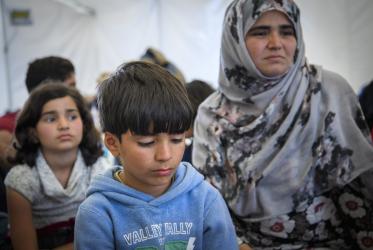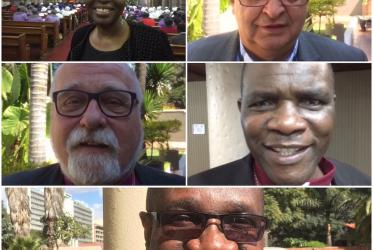Displaying 61 - 80 of 148
09 December 2017
Trinity Church, Oslo, Norway
During Advent, WCC invites the world to “A Light of Peace”
14 November 2017
A Light of Peace - for the Korean Peninsula and a world free from nuclear weapons
03 - 10 December 2017
Worldwide
WCC staff resolve to work with “faith, hope and love”
28 September 2017
World Week of Peace highlights “culture of love and resilience”
27 September 2017
WCC moderator reflects on Reformation in today’s world
04 August 2017
Voices from a solidarity visit to Zimbabwe
25 May 2017
‘Love is stronger than hate’
02 May 2017
WCC general secretary speaks on religion and discrimination
14 February 2017
Jewish-Christian relations highlighted in latest Current Dialogue
29 November 2016
In Syria and Iraq, minorities must come out of the darkness
28 November 2016
Out of the darkness
28 November 2016
Paralyzed by shock
28 November 2016














